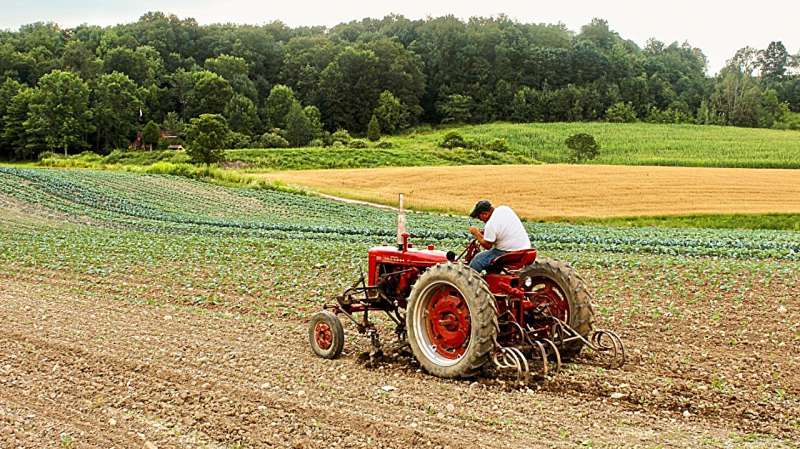Research from Cornell University highlights that eco-friendly agricultural practices, such as crop rotation and reduced tillage, are underutilized in the United States. The study indicates that farmers often overestimate labor requirements associated with these practices, contributing to their low adoption rates.
The findings, published in the journal Agriculture and Human Values, stem from a survey of over 500 fruit and vegetable farmers along with in-depth interviews with nearly 50 farmers in New York and California. Researchers found that perceived barriers related to labor cost, time, and complexity significantly hinder the implementation of agroecological practices. Among the eight practices examined, including the use of compost and cover cropping, those who had never adopted these methods reported greater labor challenges than those who had experience with them.
Rachel Bezner Kerr, a professor in the College of Agriculture and Life Sciences, stated, “When people talk about agroecological practices, they often assume it’s not really viable in the U.S. context. This paper really shows that American farmers can use these practices, and that the barriers are lower than they may have thought.”
The researchers, including experts from The Nature Conservancy, emphasized the necessity for farmer-to-farmer knowledge sharing. They argue that increasing awareness and understanding of these methods can help dispel myths and promote wider adoption.
Jeff Liebert, the study’s lead author now at the University of British Columbia, noted, “Agroecology is about context-specific, place-based solutions, and there are many opportunities to foster local, farmer-led movements.” He highlighted that while the eight agroecological practices generally require more complex management, they can ultimately pay for themselves through enhanced productivity and improved environmental health.
The study reveals particularly low adoption rates among large farms, which dominate U.S. agricultural land. Farmers managing larger operations frequently reported systemic labor challenges, including a shortage of workers and heightened pressure from state minimum wage increases. Consequently, these farms tend to favor mechanization over labor-intensive methods, potentially limiting future employment opportunities in agriculture.
“There’s a bigger question here about the type of world we’re moving towards and the types of potential solutions we’re willing to grapple with,” Liebert said. He expressed concern that increased mechanization could diminish the meaningfulness of farm work and reshape rural communities.
Addressing the diverse labor challenges faced by farms of varying sizes is critical for promoting an agroecological movement in the U.S. The authors suggest that broader discussions about non-agricultural policies could also illuminate how these factors complicate labor investment, particularly for farmers facing market pressures for low-cost food.
Looking ahead, Liebert cautioned that a significant shift toward mechanization could lead to fewer farm workers in agriculture, potentially exacerbating environmental challenges. “Fast-forward 10 years from now, you may have a lot fewer farm workers engaged in agriculture because farmers have shifted to greater mechanization,” he stated.
Interviews conducted by the researchers revealed that many farmers remain committed to sustainable practices and care deeply about feeding people and protecting their workers. Yet, the structural factors influencing their decisions often lie beyond their control.
This research sheds light on the complex landscape in which farmers operate and underscores the importance of addressing perceived barriers to eco-friendly agriculture. By fostering greater collaboration and knowledge sharing among farmers, there is potential for increased adoption of practices that can benefit both the environment and agricultural productivity.
For more information, see the full study by Jeffrey Liebert et al. in Agriculture and Human Values (2025). DOI: 10.1007/s10460-025-10796-z.







